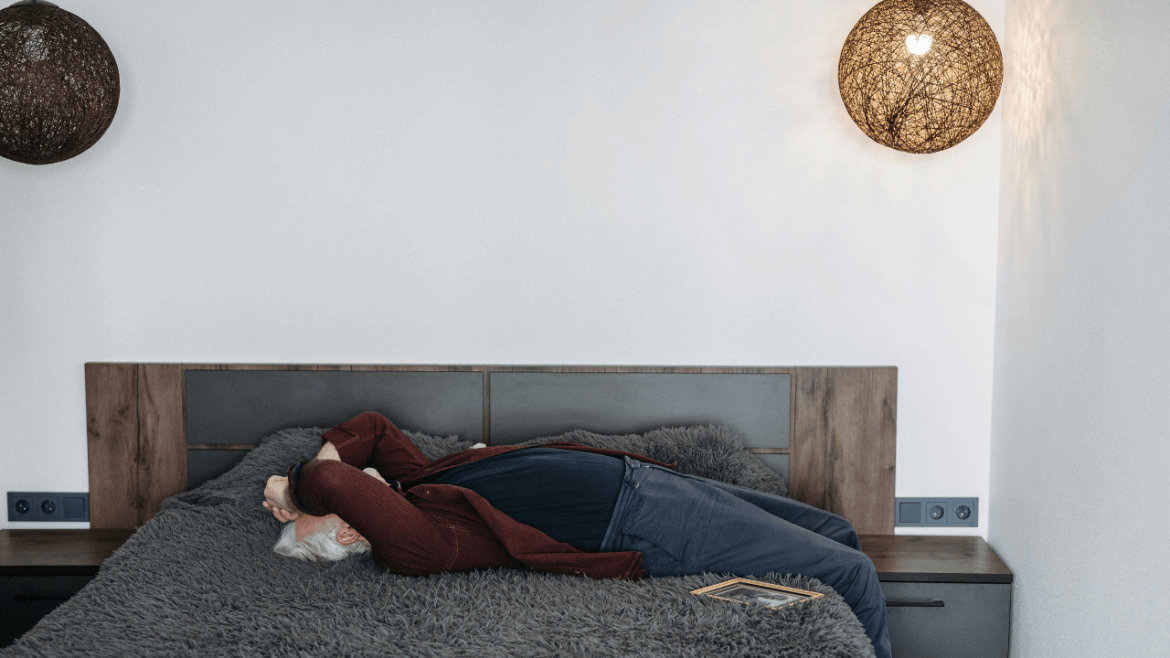Did you know that Leading Edge Senior Care has a Dementia Support Group? We meet monthly in Mesa. For more details <click here>
The Dangers Of Insomnia In Seniors
Insomnia is a condition often underestimated, especially among seniors. The inability to get a good night’s sleep can affect anyone, but its impact on older adults can be profound.
Sleep is essential for maintaining physical and emotional health, yet many seniors struggle to achieve restful slumber. Understanding the dangers of insomnia in seniors reveals the critical importance of addressing this condition with care and urgency.
The Physical Consequences of Insomnia
When sleep becomes elusive, the body suffers. For seniors, the physical consequences of insomnia can escalate quickly. Restorative sleep is vital for cellular repair, immune function, and cardiovascular health. A lack of sleep weakens the immune system, making older adults more susceptible to infections and illnesses. Chronic sleep deprivation can also increase the risk of high blood pressure, heart disease, and stroke.
The connection between sleep and chronic pain is another critical concern. Many seniors already experience discomfort due to arthritis or other conditions. Insomnia intensifies pain sensitivity, creating a vicious cycle of restlessness and discomfort. Over time, the inability to rest properly may delay the healing of injuries or surgeries, further compromising physical well-being.
Cognitive Decline and Memory Loss
Sleep plays a fundamental role in brain health. During the deepest stages of sleep, the brain consolidates memories and clears out toxins. Insomnia disrupts this process, leading to cognitive impairments. Seniors with chronic insomnia are more likely to experience memory problems, confusion, and difficulty concentrating.
There’s also a significant link between insomnia and an increased risk of developing dementia. Studies suggest that poor sleep quality over time may accelerate the accumulation of harmful proteins in the brain, such as beta-amyloid, which is associated with Alzheimer’s disease. For seniors already battling early cognitive decline, insomnia can hasten the progression of symptoms.
Emotional and Psychological Impacts
Insomnia doesn’t just affect the body; it profoundly impacts emotional health. Seniors who experience sleepless nights often grapple with feelings of frustration, sadness, and anxiety. Sleep deprivation disrupts the balance of hormones like serotonin and cortisol, which are essential for mood regulation. This imbalance can lead to a heightened risk of depression and anxiety disorders.
Loneliness is another emotional challenge tied to insomnia. The inability to sleep can create a sense of isolation, particularly during nighttime hours. Seniors may withdraw from social interactions due to fatigue or irritability, compounding feelings of loneliness and contributing to a decline in overall mental health.
The Impact on Daily Life and Safety
Insomnia doesn’t just affect seniors during the night—it disrupts their daily lives as well. Persistent fatigue makes it challenging to perform everyday tasks. Seniors may find themselves unable to focus on hobbies, household chores, or even personal hygiene. This loss of productivity and independence can diminish their quality of life.
One of the most concerning dangers is the increased risk of accidents. Sleep-deprived seniors are more prone to falls, which can result in fractures or other severe injuries. Fatigue also impairs driving ability, heightening the risk of automobile accidents. Addressing insomnia is crucial for ensuring the safety and well-being of seniors in their day-to-day activities.
Underlying Causes and Risk Factors
Understanding why insomnia occurs in seniors is key to finding solutions. Aging naturally changes sleep patterns, often leading to lighter and shorter sleep cycles. However, other factors can exacerbate insomnia. Chronic conditions like sleep apnea, restless leg syndrome, and heart disease are common culprits. Medications prescribed for these conditions may also interfere with sleep.
Mental health issues, such as anxiety or depression, often contribute to insomnia. Stressful life events, including the loss of a spouse or transitioning to assisted living, can disrupt sleep routines. Additionally, lifestyle factors like lack of physical activity, excessive caffeine consumption, or irregular sleep schedules may perpetuate the cycle of insomnia.
Solutions to Combat Insomnia
The dangers of insomnia in seniors make it imperative to seek effective solutions. A holistic approach to improving sleep can significantly enhance their quality of life. Establishing a consistent bedtime routine is one of the most effective strategies. Seniors should aim to go to bed and wake up at the same time every day, even on weekends.
Creating a sleep-conducive environment can also make a difference. This includes a comfortable mattress, minimal light exposure, and a cool room temperature. Encouraging relaxation techniques, such as meditation or deep breathing exercises, can help seniors unwind before bedtime.
For those whose insomnia persists, seeking medical advice is essential. Sleep disorders often require professional evaluation and treatment. In some cases, cognitive behavioral therapy for insomnia (CBT-I) has proven to be a highly effective non-pharmaceutical intervention. Seniors should also discuss their medications with a healthcare provider to identify and address any potential side effects impacting their sleep.
Emphasizing the Importance of Sleep for Seniors
Insomnia is not just a passing inconvenience; it’s a serious health concern for seniors. Its physical, emotional, and cognitive consequences can undermine the well-being of even the most resilient individuals.
Addressing insomnia with compassion and practical solutions can help seniors regain control over their sleep and, ultimately, their lives. By prioritizing rest and seeking appropriate care, seniors can enjoy healthier, more fulfilling days—and peaceful nights.

